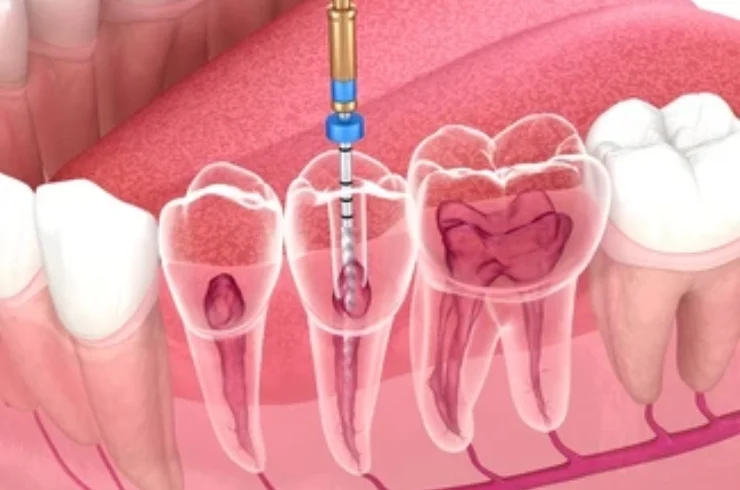
Endodontic treatment, commonly known as root canal therapy, is a specialized dental procedure designed to save and restore infected or damaged teeth. It involves removing infected pulp, cleaning and disinfecting the root canals, and sealing the tooth to prevent further infection.
Endodontic treatment is required when the inner pulp of the tooth becomes inflamed or infected due to:
✔ Deep cavities – Untreated decay can reach the pulp, causing severe pain and infection.
✔ Cracked or fractured teeth – Damage can expose the pulp to bacteria, leading to infection.
✔ Repeated dental procedures – Multiple restorations on the same tooth can weaken and inflame the pulp.
✔ Injury or trauma – A sudden impact can damage the inner tissue, even if the tooth appears intact.
✅ Tooth Preservation – Helps retain your natural teeth instead of requiring extractions.
✅ Pain Relief – Eliminates discomfort caused by infection or inflammation.
✅ Prevents Further Infection – Stops bacteria from spreading to nearby teeth and gums.
✅ Restores Functionality – Strengthens the treated tooth, allowing for normal chewing and speaking.
✅ Long-Lasting Results – A properly treated tooth can last a lifetime with good oral hygiene.
1️⃣ Examination & Diagnosis
2️⃣ Local Anesthesia & Access Opening
3️⃣ Pulp Removal & Cleaning
4️⃣ Filling & Sealing
5️⃣ Restoration with a Crown
✔ Persistent toothache or sensitivity to hot and cold.
✔ Swollen gums or a recurring pimple-like bump near the affected tooth.
✔ Tooth discoloration, indicating nerve damage.
✔ Pain while chewing, even after previous treatments.
🔹 Mild discomfort is normal but subsides in a few days.
🔹 Avoid hard foods until the final restoration is complete.
🔹 Maintain good oral hygiene with regular brushing, flossing, and dental checkups.